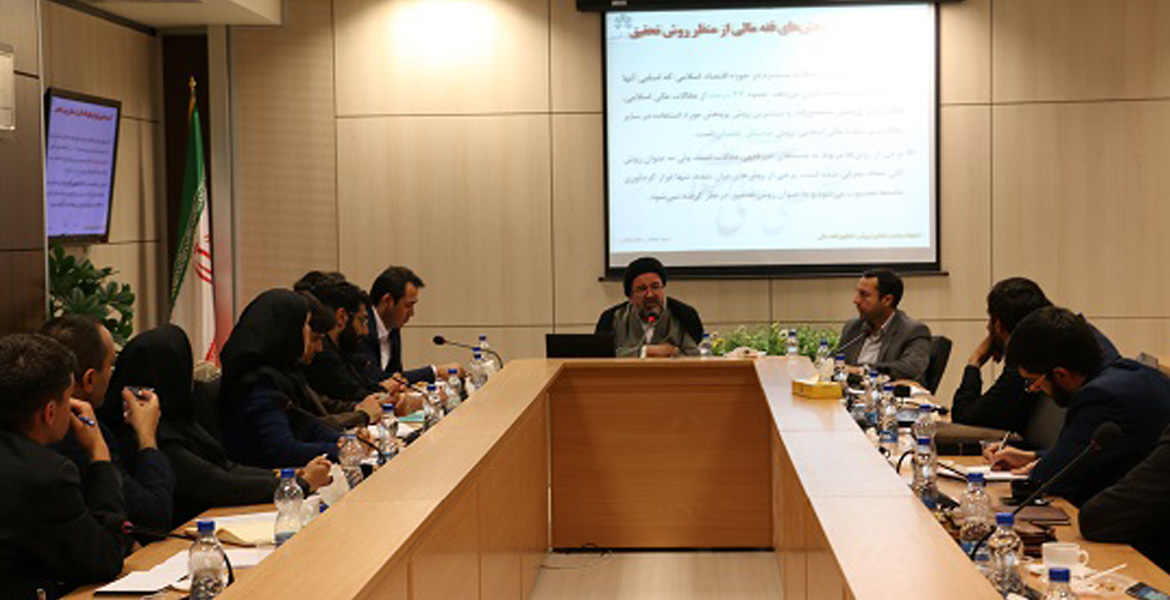
The IAIF held the 9th specialized session on Multi-stage ijtihad; Methodology of Financial Jurisprudence on 18 Oct. 2016.
Dr. seyed Abbas Mousavian, a member of the High Council of the Exchange Organization and a member of the Sharia Council of the Central Bank, said that since the beginning of designing and using many products, instruments and economic and financial methods were from Western countries and were formed based on their value and legal principles, they are not compatible with the values, jurisprudence and laws of Islam in some cases. Therefore, Islamic economists and financial thinkers have tried to announce the Islamic view on whether or not to use them by examining these methods and instruments. In other words they make an attempt to modify existing methods and instruments or design new instruments and methods.
Stages of the model of multi-stage ijtihad in financial jurisprudence:
1- Identifying and selecting the financial issue
2- Determining the jurisprudential dimensions of the financial issue
3- Examining the jurisprudential documents related to the subject
4- Matching the jurisprudential dimensions of the subject with the jurisprudential documents
5- Selecting financial jurisprudence experts (at least five people)
6- Collecting and summarizing the opinions of financial jurisprudence experts
7- Receiving the opinion of the senior clerics
He said financial jurisprudence is a set of rules and jurisprudential issues regarding financial and economic affairs that have been proposed by contemporary and past jurists. Considering the importance of finance in the stability of societies and its role in the material and spiritual destiny of individuals and societies, it is necessary to deal with the issues of financial jurisprudence with more sensitivity and delicacy. However, in any branch of science, having a coherent and systematic methodology can lead to better and more reliable results.
Financial science, as one of the branches of humanities that has had a rapidly growing trend in the last few decades and faced many innovation. Meanwhile, Islamic finance as one of the branches of financial science has cut the attention of many Muslims and even non-Muslims. On the other hand, researchers in the field of Islamic economics and finance, in order to study the jurisprudence of issues in conventional economics and finance or design new methods and instruments in Islamic economics and finance, use various methods and approaches in their research and sometimes even without relying on a specific method they conduct research in this area reducing the validity of the results and leading to inconsistencies in the results of various studies.
Dr. Mousavian stated the philosophy of the multi-stage ijtihad in economic jurisprudence is based on two points: first, most scholars in the field of Islamic economics and finance do not have sufficient mastery of the delicacy of jurisprudence and even if they want to explain the issues to the senior clerics, they are not familiar with the necessary jurisprudential sensitivities. On the other hand, due to the diversity of science and human knowledge in various fields and increasing their daily complexity, it is not possible to have a deep thematics in all fields of science, such as Islamic economics and finance for the senior clerics. Therefore we cannot trust an answer to a simple religious question called Estefta’at, which does not reveal many details of the subject.


